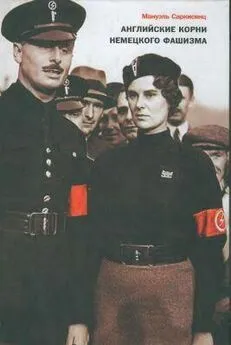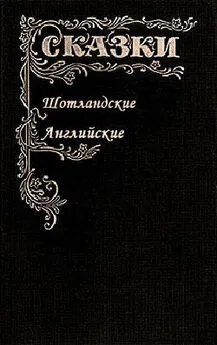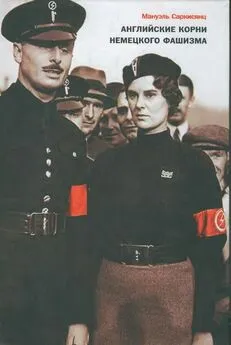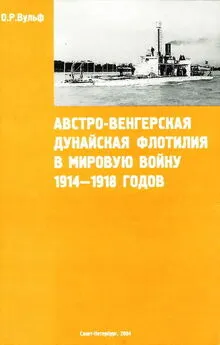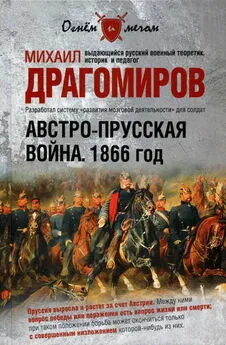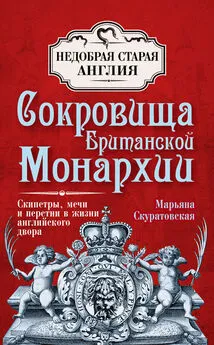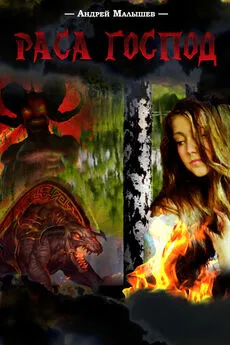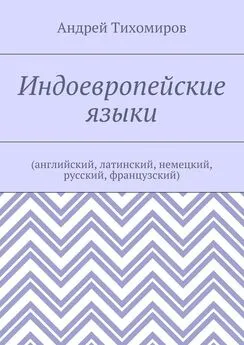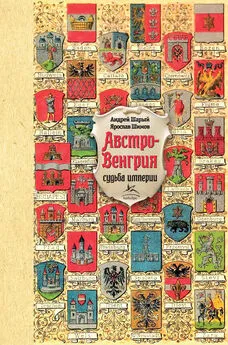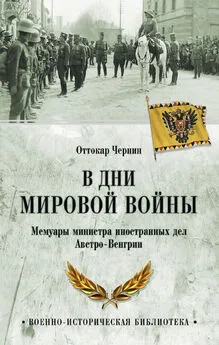Мануэль Саркисянц - Английские корни немецкого фашизма: от британской к австро-баварской «расе господ».
- Название:Английские корни немецкого фашизма: от британской к австро-баварской «расе господ».
- Автор:
- Жанр:
- Издательство:неизвестно
- Год:неизвестен
- ISBN:нет данных
- Рейтинг:
- Избранное:Добавить в избранное
-
Отзывы:
-
Ваша оценка:
Мануэль Саркисянц - Английские корни немецкого фашизма: от британской к австро-баварской «расе господ». краткое содержание
Мануэль Саркисянц (р. 1923, Баку) — известный историк и социолог, исследователь религиозных истоков народнического социализма России, Латинской Америки, Юго-Восточной Азии.
В данной книге излагается совершенно новый взгляд на происхождение немецкого фашизма. М. Саркисянц доказывает, что многие истоки идей Гитлера кроются в имперской политике и идеологии Англии. Автор последовательно показывает, как колониальная политика Англии, ее имперские амбиции, отношение к расовому вопросу, принципы воспитания и образования повлияли на формирование идей Гитлера. Подробно рассказано об идеализации гитлеровского Рейха в консервативном истеблишменте Великобритании, об участии англичан во Второй мировой войне на стороне Германии. Автор анализирует также принципиальные различия в теоретических и практических подходах британских и германских расистов, обусловивших столь разную судьбу и оценку соответствующих исторических феноменов.
Английские корни немецкого фашизма: от британской к австро-баварской «расе господ». - читать онлайн бесплатно полную версию (весь текст целиком)
Интервал:
Закладка:
1164
901c. R. Symonds, Oxford and Empire (London, 1991), p. lOf; cf. Keith Feiling, Life of Neville Chamberlain (London, 1947), p. 406; Robert Shepherd, pp. 106, 176f, 205f, 245f.
1165
902. Adolf Hitler, Monologe im Fuhrerhauptquartier, S. 193: 10. Januar 1942.
1166
903. Thomas Carlyle, "The Nigger Question" (1849): Carlyle, Miscellaneous Essays, Vol. IV (London, 1899), p. 374, 381.
1167
904. H. Thost, Als Nationalsozialist in England (Munchen, 1939), S. 323f, 240f; Hermann Rauschning. Die Revolution des Nihilismus, Kulisse und Wirklichkeit im Dritten Reich (Zurich, 1938), S. 372.
1168
905. Ibid., S. 382f; Rauschning, Gesprache mit Hitler (Zurich, 1940), S. 44; Раушнинг. С. 47.
1169
906. Allen Greenberger, British Image of India, p. 60.
1170
907. K. Tidreck, Empire and English Character, p. 246; cf. Scott Newton, Profits of Peace. Political economy of Anglo-German Appeasement (Oxford, 1996), pp. 168, 152; Ivonne Kirkpatrick, The Inner Circle. Memoirs (London, 1959), p. 97; Wahrhold Drascher, Die Vorherrschaft der Weissen Rasse (Berlin, 1936), S. 373, 222.
1171
908. Ibid., S. 153, 375, 379, 221, 343, 345.
1172
909. Dr. Johann von Leers, Die Deutschen — Kolonialpioniere Europas (Stuttgart, 1937), S. 76, 72.
1173
910. Marquess Londonderry, Ourselves and Germany (1938), p. 80.
1174
911. John Toland, Adolf Hitler (Bergisch Gladbach, 1977), S. 499.
1175
912. Thurlow, Fascism in Britain (London, 1980), p. 165.
1176
913. Fred Winterbotham, Secret and Personal (London, 1969), S. 38–39; Winterbotham, The Nazi Connection, S. 93 nach Griffiths (as note 791), p. 119f, 176; R. Cecil, The Myth of the Master Race (London, 1972), p. 176; Margaret George (as note 893), p. 180; J. Wheeler-Bennet, King George VI (Toronto, 1958), p. 346.
1177
914. Hans Grimm, Heynade und England. Eine deutsch-englische Familiengeschichte 1880–1923 (Lippoldsberg, 1969), Buch I, S. 351.
1178
915. Ibid., Buch III, S. 164; Buch I, S. 191, 13.
1179
916. Hans Grimm, Englische Rede. Wie ich den Englander sehe (1938), S. 18f, 7f.
1180
917. L. Amery, My political Life, Vol. IlI (1953), p. 247; Bernd Martin, Friedensinitiativen und Machtpolitik im Zweiten Weltkrieg, S. 507; Alfred Rosenberg, Der Mythus des Zwangzigsten Jahrhunderts. Wertung der seelisch-geistigen Gestaltenkampfe unserer Zeit (Munchen, 1943), S. 666.
1181
918. Ibid., S. 660, 663.
1182
919. Ibid., S. 676.
1183
920. Ibid., S. 656, 657.
1184
921. Adolf Hitler, Mein Kampf (1941), S. 743.
1185
922. Adolf Hitler, Mein Kampf (Munchen, 1941), S. 154.
1186
923. Valentin Falin, Die Zweite Front. Die Interessenkonflikte in der Anti-Hitler-Koalition (Munchen, 1995), S. 38.
1187
924. Memorandum Undersecretary of State Olme G. Sargent of the Foreign Office of 17. February 1935: Documents of British Foreign Policy 1919–1939, Series 2, Vol. XII (London, 1972), p. 501f.
1188
925. Maurice Cowling, The Impact of Hitler. British politics and policies 1933–1940 (Chicago, 1977), p. 126.
1189
926. Joseph Chamberlain in Birmingham 1898 and in Leicester 1903 in Lean Poliakov, The Aryan Myth, A history of racist and nationalist ideas in Europe (London, 1971), p. 190, 377.
1190
927. Robert Cecil, The Myth of the Master Race (London, 1972), p. 185; Ernst Nolte, Die Krise des liberalen Systems und die faschistischen Bewegungen, S. 332, 203.
1191
928. Rudolf Hess, Briefe 1908–1933. Hrsg. von Wblf Rudiger Hess (Munchen, 1987), S. 38.
1192
929. Hans Lutzhoft, Der Nordische Gedanke in Deutschland 1900–1940 (Kiel, 1971), S. 372.
1193
930. Robert Cecil, The Myth of the Master Race, p. 54, 168; Adolf Hitlers Zweites Buch. Ein Dokument aus dem Jahr 1928 = Institut fur Zeitgeschichte, Quellen und Darsteilungen zur Zeitgeschichte, Band VII (Stuttgart, 1961), S. 2.
1194
931. Cecil, Myth of the Master Race, p. 162, 167.
1195
932. Alfred Rosenberg. Der Mythus des Zwanzigsten Jahrhundert, S. 675.
1196
933. Ibid., S. 671–672.
1197
934. Richard Griffiths, Fellow Travellers of the Right. British enthusiasts for Nazi Germany, 1933–1939 (Oxford, 1983), p. 313.
1198
935. Franz Schonauer, Deutsche Literatur im Dritten Reich. Versuch einer Darstellung (Freiburg im Breisgau, 1961), S. 48.
1199
936. Hans Grimm, Heynade und England. Eine deutsch-englische Familiengeschichte 1880–1923 (Lippoldsberg, 1969), Buch I, S. 204, 292; Griffiths, p. 317, 320.
1200
936a. Gerwin Strobl. The Germanic Isle. Nazi perceptions of Britain, p. 82.
1201
936b. Sarvepalli Gopal, Jawaharlal Nehru. A Biography. Vol. I (London, 1975), p. 232, quoting National Herald of"24. January, 1939.
1202
936c. R. Griffiths, Fellow Travellers of the Right, p. 320.
1203
937. Ibid., p. 321; Earl of Portsmouth, Gerald Wallop, A Knot of Roots (New York, 1965), pp. 127, 128, 13If; Fergal Keane, "Save us from our friends… Aung San's murder": The Manchester Guardian of 19. July, 1997.
1204
938. Cowling (wie Anm. 925), S. 239.
1205
939. Hitler, Monologe, S. 466.
1206
940. David Pryce-Jones, Unity Mitford. A Quest (1976), pp. 232, 235; Griffiths, p. 173f.
1207
941. Randall Bytwerk, Julius Streicher (wie Anm. 50), S. 35.
1208
942. Saturday Review of 20. and 6. June 1936 in Griffiths, p. 234.
1209
943. Robert Bruce Lockhart, Diary. Edited by yon Kenneth Young (London, 1973), entry of 14. September 1934, in Griffiths, p. 169.
1210
944. Griffiths, p. 225; David Pryce-Jones, Unity Mitford. A Quest (1976), p. 110.
1211
945. Hans Adolf Jacobsen, Nationalsozialistische Aussenpolitik 1933–1938 (Frankfurt, 1968), S. 334.
1212
946. Thost, Als Nationalsozialist in England (Munchen, 1939), S. 222, 17; Cowling, p. 118, 119, 157.
1213
947. Cowling, p. 120f.
1214
948. Cowling, p. 122, 135; cf. B. Semmel, Imperialism and Social Reform, p. 256.
1215
949. H. Frankel & R. Manvell, Hermann Goering (Hannover, 1964), S. 171.
1216
950. Cowling, p. 166, 162.
1217
951. Cowling, p. 284–285; cf. Josef Henke, England in Hitlers politischem Kalkul (1973), p. 14; Martin Thomas, Britain, France and Appeasement (Oxford, 1956), pp. 91f; Robert Rhodes James (Editor), Chips: The Diaries of Sir Henry Channon (London, 1967), p. 198: 11. May 1939.
1218
952. English Review of September 1936, p. 204 in Griffiths, p. 233.
1219
952a. Enrique Moradiellos, La perfidia de Albion. El gobierno britanico у la guerra civil espafiola (Madrid, 1996), p. 201.
1220
953. Cowling, p. 275, 273.
1221
954. Cowling, p. 263, 281.
1222
955. Cowling, p. 160–162, 274–275.
1223
955a. On Wilson-Knight cf. James Anthony Froude, cited by Hans Galinsky, "Sendungsbewusstsein der politischen Fuhrungsschicht im heutigen Britentum": Anglia, Zeitschrift fur englische Philologie, Vol. LXIV (Halle, 1940), S. 319; F. Brie, Imperialistische Stromungen in der englischen Literatur (Halle, 1928), S. 128.
1224
956. Cowling, p. 266, 125, 376.
1225
956a. Keith Middlemas, The Strategy of Appeasement. The British Government and Germany 1937–1939 (Chicago, 1972), p. 100: Parliamentary Debates, Fifth Series, Vol. 332 in House of Commons, February, 1938, Hansard (London, 1938), Col. 227.
1226
957. Cowling, p. 126, 269–270; J. A. Cromb, Reflections on Destiny of Imperia Britain (London, 1900), p. 209.
1227
958. Cowling, p. 162, 169; T. Kushner & K. Lunn, Traditions of Intolerance… Fascist and racist discourse in Britain (Manchester, 1989), p. 183; Domville Diaries of 12. November, 1939; cf. Gaines Post, Dilemmas of Appessement (Ithaca, USA, 1993), p. 60 and Douglas Little, Malevolent Neutrality (Ithaca, USA, 1985), p. 43.
1228
959. Transatlantisches Ferngesprach mit Professor Dr. Hans-Adolf Jacobson vom 8. Mai 1996; Jan Colvin, The Chamberlain Cabinet. How the meetings … led to the Second World War (London, 1971), p. 266, 260; L. Amery, My political Life (London, 1955), Vol. III, p. 309; Carrelli Barnett, The Collapse of British Power (1997), p. 573; R. Cockett, Twilight of Truth (London, 1989), p. 83, 82, 189, 188.
1229
960. Ivonne Kirkpatrick, Inner Circle (London, 1957), p. 195; Margaret George, Warped Vision. British foreign policy 1933–1939 (Pittsburgh, USA, 1965), p. 199; William Rock, British Appeasement in the 1930's (London, 1977), p. 28, 67, 89f.
1230
960a. Erich Kordt, Nicht aus den Akten. Die Wilhelmstrasse in Frieden und Krieg. Erlebnisse, Begegnungen und Eindrucke 1928–1945 (Stuttgart, 1950), S. 248; internationale Militargerichtshof, IV, S. 466: Jodl; Meehan, Unnecessary War, p. 135.
1231
960b. Winston Churchill, The Second World War, I: The Gathering Storm (London, 1950), pp. 281f, 286, 301f; Robert Caputi, Neville Chamberlain and Appeasement (London, 2000), p. 50; Andrew Rothstein, The Munich Conspiracy (London, 1958), p. 194f; Jan Colvin, The Chamberlain Cabinet. How the meetings … led to the Second World War (London, 1971), p. 269; L. S. Amery, My political Life (London, 1955), Vol. III, p. 288f; cf G. Jukes, "The Red Army and the Munich Crisis": Journal of Contemporary History, Vol. XXVI, pp.202, 203.
1232
960c. Hitler, Zweites Buch (wie Anm. 3), S. 147.
1233
960d. Albert Sneer, Erinnerungen (Frankfurt, 1969), S. 125.
1234
960e. Nuerenberg Trial of the Major War Criminals, XI, S. 2: Rothstein, p. 198; Patricia Meehan, p. 134.
1235
960f. Heinz Drummel, Vom Anschluss zum Krieg (Wien, 1989), S. 263.
1236
960g. Siegfried Westphal, Heer in Fesseln. Aus Papieren des Stabschefs von Rommel, Kesselring und Runstedt (Bonn, 1950), S. 73f; Rothstein, S. 201; Kimche, The Unfought Battle (London, 1968), S. 29; Robert Caputi, Neville Chamberlain and Appeasement (London, 2000), p. 210.
Читать дальшеИнтервал:
Закладка:
